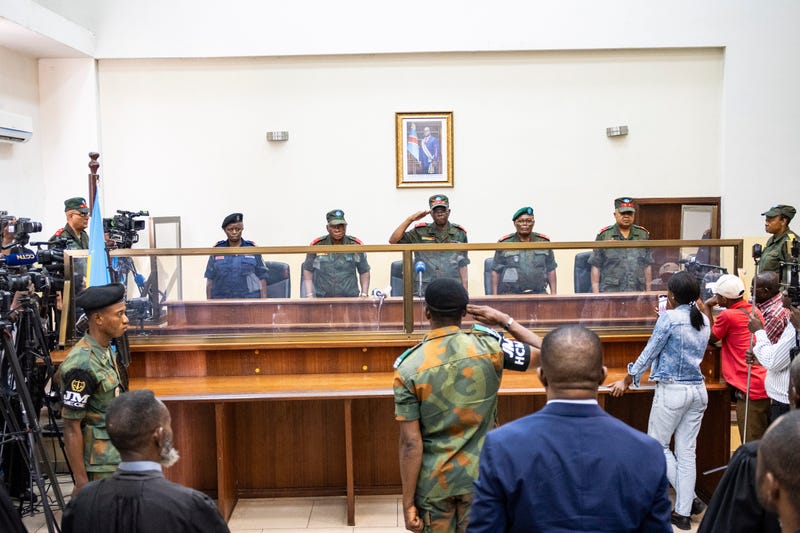
A high military court in Congo convicted former President Joseph Kabila of treason and war crimes Tuesday on accusations of collaborating with anti-government rebels and sentenced him to death.
It was not immediately clear how the sentence could be carried out because the whereabouts of Kabila, who has been on trial in absentia since July, have been unknown since he last was seen in public in a rebel-held city earlier this year. Kabila's political party called the verdict politically motivated.
The court in Kinshasa ordered his immediate arrest.
The government said Kabila collaborated with Rwanda and the Rwanda-backed rebel group M23, which seized key cities in a lightning assault in January in Congo's mineral-rich east.
Kabila has denied the allegations, though he expressed support for the rebels' campaign in an op-ed published in February in the South African newspaper Sunday Times.
The high military court in Kinshasa ruled Tuesday that Kabila was guilty of treason, war crimes, conspiracy and organizing an insurrection together with the M23. It also ordered Kabila to pay $29 billion in damages to Congo, as well as $2 billion to the country's province of North Kivu and $2 billion to South Kivu.
The court said prosecutors presented testimony implicating Kabila from Eric Nkuba, the imprisoned former chief of staff of rebel leader Corneille Nangaa. Nkuba was convicted on rebellion charges in August 2024.
The court cited Nkuba as saying that Kabila regularly communicated with Nangaa by phone about how to overthrow the government of current President Felix Tshisekedi.
The head of Kabila's People’s Party for Reconstruction and Democracy called the verdict “a political, unfair decision.”
“We believe that the clear intention of the dictatorship in power is to eliminate, to neutralize, a major political actor," the party's permanent secretary, Emmanuel Ramazani Shadary, said in an interview with The Associated Press.
Richard Bondo, a lawyer who represented the provinces of North Kivu and South Kivu, said he was “satisfied” with the court's decision. “Justice rendered in the name of the Congolese people gives satisfaction to its people,” he added.
Kabila led Congo from 2001 to 2019. He took office at the age of 29 — after his father and former President Laurent Kabila was assassinated — and extended his mandate by delaying elections for two years after his term ended in 2017. His candidate lost in December 2018 to Kabila’s long-term political rival, Tshisekedi, who has ruled the country since 2019.
In May, the country’s Senate voted to repeal Kabila's immunity from prosecution, a move Kabila denounced at the time as dictatorial.
Kabila had lived outside of Congo in self-imposed exile but returned in April to Goma, one of the cities held by the rebel group. His current location is unknown.
Congo’s decades-long conflict escalated in January, when the M23 rebels advanced and seized the strategic city of Goma, followed by the town of Bukavu, which they took in February. The fighting has killed some 3,000 people and worsened what was already one of the world’s largest humanitarian crises, with around 7 million people displaced.